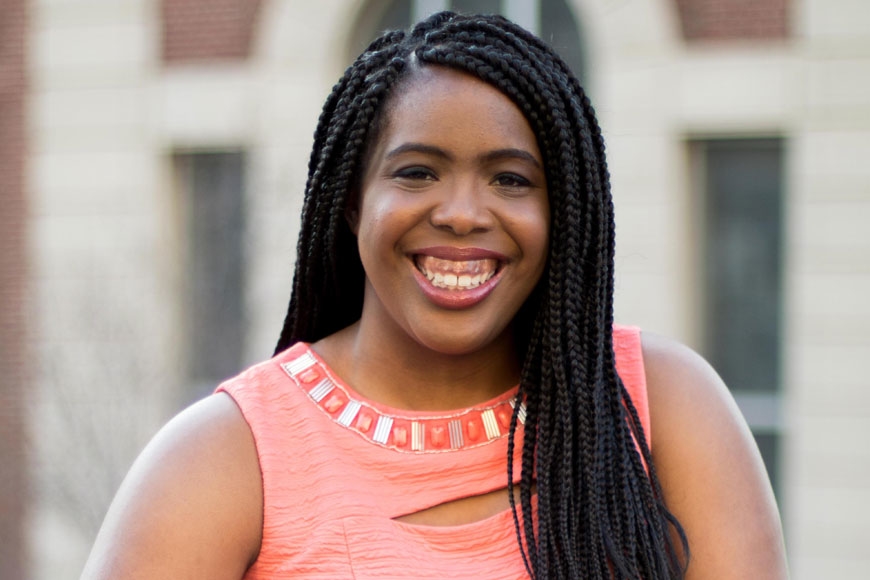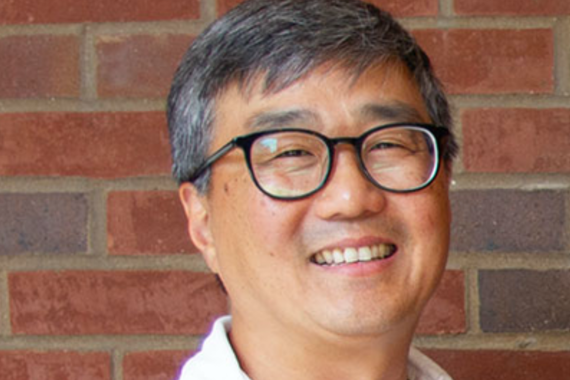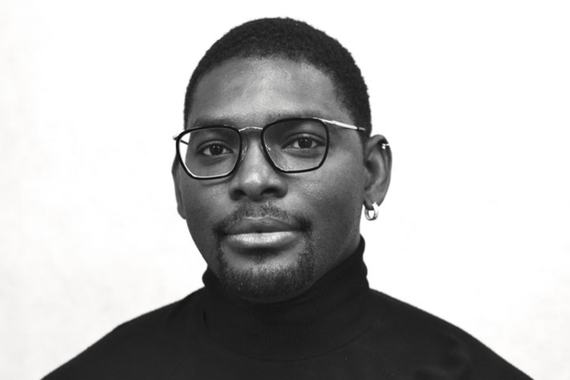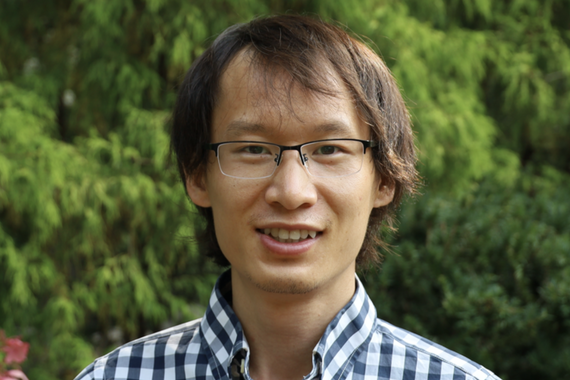Mental Health Care For All
As a doctoral student in counseling psychology, Vanessa Anyanso is learning to be a clinician while counseling a wide variety of clients. Some are University students with mental health challenges, while others are community members grappling with issues like addiction or anger management.
Anyanso often notices a palpable sense of relief when BIPOC patients see that she is Black, knowing that she likely has similar life experiences because she is a Nigerian American woman. Often it confirms Anyanso’s perspective that the academic and clinical sides of psychology need more practitioners from underrepresented communities.
“I think there are a lot of people who don’t look at Black and Brown people’s experiences as valid until there is some research they can turn to,” says Anyanso, who majored in psychology at Columbia University. “With my research knowledge, I can provide that language to people that their experience is valued. It can be studied and then put into language that people have to listen to.”
Anyanso is finishing the third year of her PhD program and has two more to go in the Twin Cities, then a final internship year. Though she is still weighing how she will use her degree, Anyanso aims to unite her loves of helping individuals and doing research. She already has been an active researcher since arriving in Minnesota in 2019, earning a highly competitive graduate research fellowship from the National Science Foundation.
Wellness during COVID
Anyanso’s initial research proposal involved studying Black mental health, especially the role of social media in perpetuating trauma in African American communities. When the COVID-19 pandemic struck, she pivoted to conducting a wellness survey that regularly assessed the health and wellness of undergraduate and graduate students, faculty, and staff at the University.
Conducted seven times over two years with 565 participants, the COVID-19 Wellness Survey tracked mental health as the pandemic and other historic events unfolded, including the murder of George Floyd and ensuing civil unrest, the Derek Chauvin trial, the murder of six Asian women in Georgia, and the fraught presidential election.
“It’s been a very time-consuming and exhausting experience, but it’s also very rewarding to be able to track people in the University community over time,” Anyanso says. “Every time we sat down to do a new survey, we would add questions about what was happening in the world with the pandemic and these huge social events.” For example, she added a question asking whether respondents engaged in protests to gauge if activism positively affected their mental health.
Anyanso’s research has been ambitious, but it speaks to her persistence and resilience in the face of personal and community trauma, says her faculty advisor Richard Lee, Distinguished McKnight University Professor in the Department of Psychology.
“We need more scholars and practitioners like Vanessa who are willing to study the things that most others ignore and serve the communities that are most underserved, and then educate our students around these issues,” Lee says. “Vanessa is growing into becoming an independent scholar and practitioner and doing it in a way where she doesn’t lose focus on the things that matter to her.”
Serving the community and being a resource to others are ways that Anyanso puts her goals into action. After protests in 2020 left many people without access to groceries and supplies, she raised more than $20,000 and bought and donated items to support protestors, residents, and organizations across Minneapolis. Anyanso also started her PhDiversity podcast to demystify graduate school for others. By sharing encouragement and information she has learned along the way, Anyanso strives to diversify the field of psychology.
Career-shaping experiences
With so much racial trauma occurring lately in the Twin Cities, it has been a tough time to move to Minnesota. Anyanso notes that though her time here hasn’t always been positive, she appreciates the opportunities to learn and get involved in the community in a meaningful way during an important time.
“I feel really supported by my advisor and my lab, and I’m grateful to many of them for getting me through,” Anyanso says. “I try to take pride in what being here has allowed me to do,” including supporting others during protests and doing wellness research.
As she continues learning, researching, counseling, and teaching, Anyanso is gaining more perspective on how she might share her talents in the future. She knows her work will involve ensuring that the field of psychology focuses on the perspectives and experiences of all people while reducing the mental health stigma in the Black community.
“I want a lot more attention and care given to the Black experience and the Black experiences of mental health,” she says, observing that there hasn’t been enough focus on differences within diverse communities. “The experience of a cis Black woman is vastly different than a trans Black woman or a Black man. I want to make sure all of those experiences are considered when we’re thinking about mental health treatment.
“I love mentoring and teaching and bringing other people into the field to be able to think about these things and help people grow in these ways.”



